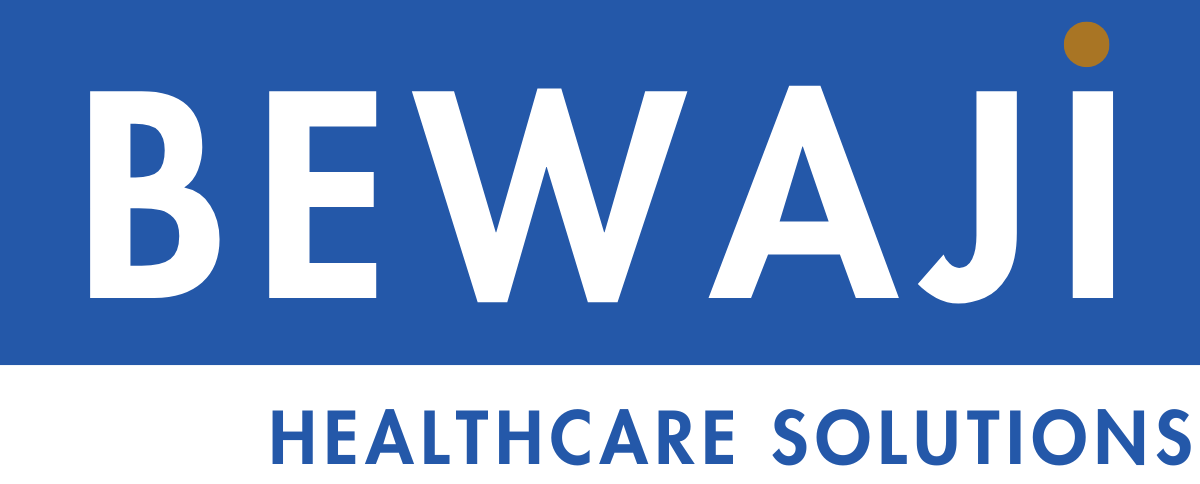Recent breakthroughs of AI in healthcare, particularly AI-driven diagnostics are setting new standards in the accuracy and efficiency of medical assessments, making earlier and more precise detections possible. Integrating AI in clinical decision support systems marks a significant evolution in healthcare delivery, enhancing diagnosis, treatment, and health management amid the growing volume and complexity of healthcare data.
These technological advancements offer dual benefits: they not only improve patient outcomes but also streamline operational efficiencies, allowing healthcare providers to focus more on patient care and less on administrative tasks. However, the rapid integration of AI in healthcare also presents considerable challenges. There are pressing ethical concerns surrounding data privacy, consent, and the potential for bias in AI algorithms, which must be addressed to maintain trust and integrity in healthcare practices.
It is crucial to emphasize the importance of a comprehensive understanding of AI’s potential and pitfalls in healthcare. By fostering a balanced approach, healthcare professionals can leverage AI to enhance patient care while mitigating data security risks and ethical complexities. This holistic understanding will be pivotal in harnessing AI’s full potential to revolutionize healthcare, making it more personalized, efficient, and accessible.
GE HealthCare’s AI-Driven Ultrasound Systems
GE HealthCare’s introduction of AI-driven ultrasound systems is an important innovation in women’s health and cardiac care that exemplifies the integration of AI in healthcare. These systems are equipped with advanced features such as voice-activated commands and automated anatomical measurements, dramatically enhancing the accuracy and efficiency of diagnostics, hallmarks of AI healthcare solutions. Such technical advancements not only streamline the workflow for healthcare professionals but also significantly reduce the time patients spend undergoing ultrasound procedures.
The broader implications for clinical practice are profound. By reducing technicians’ workload and decreasing the duration of ultrasound sessions, these AI enhancements improve the overall patient experience. They also allow quicker diagnostics, which is crucial in conditions where time-sensitive decisions impact patient outcomes.
Caption AI’s integration with handheld ultrasound devices offers real-time guidance to clinicians, making it possible to perform expert-level ultrasound scans in remote or resource-limited settings. The potential impact on patient care in these settings is one of the more promising benefits of AI technology in healthcare. These devices’ portability and ease of use democratize access to essential diagnostic care, bringing high-quality cardiac assessments to communities that previously had limited access to such advanced healthcare technologies.
These innovations exemplify the powerful synergy between technological advancements and enhanced patient care. As we explore the integration of AI across different facets of healthcare, it becomes clear that similar innovations are not only reshaping diagnostics but are also transforming drug development. This seamless integration of AI pushes the boundaries of what’s possible in healthcare, setting new standards for efficiency and effectiveness in patient care and management.
Moderna’s AI-Driven Drug Development
Partnership with OpenAI
Moderna has embarked on a groundbreaking initiative by partnering with OpenAI to harness the capabilities of artificial intelligence in drug development. This collaboration focuses on accelerating the pipeline from research to the deployment of mRNA therapies. This process has traditionally been lengthy and complex. By integrating AI, Moderna aims to significantly shorten the development time for new vaccines and treatments, enhancing the ability to respond swiftly and effectively to global health crises like pandemics. The strategic use of AI in this context not only streamlines research but also allows for rapid adjustments in therapy development based on real-time global health data and emerging needs.
AI’s integration into Moderna’s operations will change how the company conducts research and moves therapies to commercialization. By automating data analysis and simulation processes, AI technologies can identify promising therapeutic candidates at a pace far exceeding traditional methods. This acceleration reduces the time and financial costs of bringing new therapies to market, enabling a more efficient use of resources and faster access to crucial medications for patients worldwide. The operational efficiencies gained through AI empower Moderna to maintain an innovation pipeline while managing the scalability challenges associated with global distribution.
Moderna’s technological advancements in AI-driven drug development highlight a broader trend in healthcare: the move towards data-driven decision-making. By leveraging AI to enhance operational efficiencies and expedite the drug development process, the healthcare industry is positioned to improve health outcomes through more informed and timely decisions. This paradigm shift underscores the importance of integrating advanced technologies in healthcare strategies, ultimately leading to more effective treatments and improved patient care on a global scale.
Workflow improvements
Integrating AI tools in Moderna’s operations has catalyzed significant enhancements across various functions, accelerating the delivery of new therapies to the market. This rapid response capability not only speeds up the management of diseases but also bolsters healthcare systems’ capacity to handle outbreaks and health crises efficiently.
Moderna is committed to a comprehensive transformation of its operational processes. The company is implementing a combination of individual, collective, and structural initiatives through a targeted transformation program to build a broad base of AI proficiency among its workforce. From AI-enhanced training modules to competitive events that highlight leading AI adopters, Moderna is cultivating an organizational culture that values innovation and collaboration. The rollout of mChat, an internal AI-driven chatbot, has been met with enthusiastic adoption, demonstrating the employees’ eagerness to integrate these new tools into their daily operations.
Kaiser Permanente is at the forefront of enhancing physician-patient communications through its pioneering use of healthcare artificial intelligence. Utilizing natural language processing algorithms, their Desktop Medicine Program successfully handled over 1.5 million of 4.7 million patient messages in five months. The program significantly reduces the administrative burden on physicians by automating responses to routine inquiries such as pharmacy hours and medication refills. This strategy allows doctors to dedicate more time to direct patient care, thereby improving healthcare delivery’s overall efficiency and effectiveness.
AI for Enhanced Decision-Making and Health Outcomes
Decision support tools assist clinicians by providing more accurate diagnoses and creating personalized treatment plans tailored to individual patient needs. By analyzing vast datasets more efficiently than humans, AI systems can identify subtle patterns that may not be visible to the naked eye, leading to early detection of conditions that require specific interventions. This capability significantly enhances the precision of medical care, ensuring that patients receive the most effective treatments based on their unique health profiles.
Access and Equity in AI Deployment
While AI holds tremendous potential to improve healthcare outcomes, it also poses challenges regarding access and equity. A critical aspect of the ethical development of AI in healthcare involves ensuring that these technologies benefit all segments of the population equitably. Initiatives to mitigate biases in AI systems are crucial, as unchecked biases could exacerbate existing health disparities.
The FDA’s Total Product Lifecycle (TPLC) approach for healthcare AI/ML is one such initiative that seeks to continually assess and address these issues throughout AI technologies’ development and deployment phases. This approach ensures that AI tools are effective, fair, and inclusive, promoting health equity across diverse populations.
The potential drawbacks of AI make it imperative to engage in ongoing dialogue among stakeholders—including technologists, healthcare providers, policymakers, and patients. This collaboration is essential to harness AI’s capabilities responsibly and ethically, ensuring that the deployment of these technologies reflects our collective values and aims to improve health outcomes for all. The journey of integrating AI into healthcare is not just about technological advancement but also about upholding the principles of fairness, transparency, and accountability in its application.
It does not take much to conclude that artificial intelligence fundamentally transforms healthcare delivery, diagnostics, and drug development. Integrating AI into these critical areas enhances the precision and efficiency of medical services, heralding a new era of AI-driven patient care that redefines healthcare delivery standards.
These advancements underscore the pivotal role of healthcare AI systems in shaping a future where medical care is more data-driven, precise, and efficient.
Recommendations:
- Regulatory Enhancement: Robust regulatory frameworks are essential to keep pace with the rapid advancements in healthcare artificial intelligence. These frameworks should ensure the safety and efficacy of AI applications while fostering an environment conducive to innovation.
- Ethical Development: It is crucial to prioritize ethical development practices in AI healthcare solutions. This includes addressing health equity and actively mitigating any biases in AI systems that could perpetuate healthcare disparities.
- Stakeholder Engagement: Increased collaboration among tech developers, healthcare providers, patients, and policymakers is essential to create a holistic approach to AI in healthcare. This integration is crucial for crafting universally beneficial healthcare strategies.
- Call to Action: Healthcare leaders and policymakers are urged to consider these insights to ensure that AI technologies benefit all segments of society equitably. It is crucial to guide the development of AI in healthcare with a keen awareness of its vast potential and its ethical, regulatory, and practical challenges.
To conclude, the power of AI to transform healthcare is immense. However, navigating the associated challenges with a strategic and thoughtful approach is vital. By continuously evaluating and adapting our strategies and committing to ethical standards, we can ensure that AI-driven patient care benefits all patients. This balanced approach will secure a resilient, adaptive, and inclusive future for healthcare, making it more effective for generations to come.

